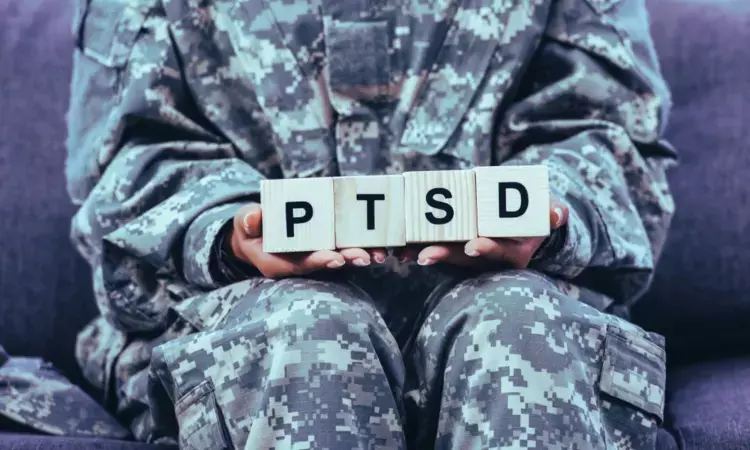- Home
- Medical news & Guidelines
- Anesthesiology
- Cardiology and CTVS
- Critical Care
- Dentistry
- Dermatology
- Diabetes and Endocrinology
- ENT
- Gastroenterology
- Medicine
- Nephrology
- Neurology
- Obstretics-Gynaecology
- Oncology
- Ophthalmology
- Orthopaedics
- Pediatrics-Neonatology
- Psychiatry
- Pulmonology
- Radiology
- Surgery
- Urology
- Laboratory Medicine
- Diet
- Nursing
- Paramedical
- Physiotherapy
- Health news
- Fact Check
- Bone Health Fact Check
- Brain Health Fact Check
- Cancer Related Fact Check
- Child Care Fact Check
- Dental and oral health fact check
- Diabetes and metabolic health fact check
- Diet and Nutrition Fact Check
- Eye and ENT Care Fact Check
- Fitness fact check
- Gut health fact check
- Heart health fact check
- Kidney health fact check
- Medical education fact check
- Men's health fact check
- Respiratory fact check
- Skin and hair care fact check
- Vaccine and Immunization fact check
- Women's health fact check
- AYUSH
- State News
- Andaman and Nicobar Islands
- Andhra Pradesh
- Arunachal Pradesh
- Assam
- Bihar
- Chandigarh
- Chattisgarh
- Dadra and Nagar Haveli
- Daman and Diu
- Delhi
- Goa
- Gujarat
- Haryana
- Himachal Pradesh
- Jammu & Kashmir
- Jharkhand
- Karnataka
- Kerala
- Ladakh
- Lakshadweep
- Madhya Pradesh
- Maharashtra
- Manipur
- Meghalaya
- Mizoram
- Nagaland
- Odisha
- Puducherry
- Punjab
- Rajasthan
- Sikkim
- Tamil Nadu
- Telangana
- Tripura
- Uttar Pradesh
- Uttrakhand
- West Bengal
- Medical Education
- Industry
Patients with mental distress after MI likely to have PTSD, finds study

A recent cross-sectional epidemiological study sheds light on a concerning trend among individuals who have experienced myocardial infarction (MI). The research, conducted as part of the Tromsø Study, aimed to investigate the prevalence of post-traumatic stress disorder (PTSD) among patients following a confirmed diagnosis of myocardial infarction and explore the relationship between PTSD symptoms and exposure to traumatic events.
This study was published in the journal BMC Psychiatry by Geir Fagerjord Lorem and colleagues. The study, encompassing a sample of 79 participants who had experienced myocardial infarction, unveiled a noteworthy discovery: 11.6% of these individuals exhibited symptoms indicative of probable PTSD. This prevalence was notably higher than what is typically postulated for the general population in Norway, marking a statistically significant difference.
Interestingly, the research didn’t establish a direct correlation between myocardial infarction as an illness trauma and the severity of PTSD symptoms. However, an intriguing pattern emerged concerning the association between PTSD symptom severity and lifetime exposure to traumatic events. As the number of traumatic events experienced by individuals increased, a proportional rise in symptom severity was observed.
The findings highlight a crucial aspect: anxiety or depression symptoms experienced by myocardial infarction patients might be secondary manifestations of PTSD rather than direct consequences of the cardiac event itself. This emphasises the importance for clinicians to be vigilant in their assessment of post-MI patients, considering the potential for underlying PTSD-related symptoms.
While this study offers valuable insights, the interaction between myocardial infarction and PTSD requires more extensive exploration. Future research endeavours are crucial to deepen our understanding of how these conditions intersect and influence each other. Such investigations could pave the way for more targeted and effective interventions aimed at improving the mental well-being of individuals recovering from myocardial infarction.
Reference:
Lorem, G. F., Næss, E. T., Løchen, M.-L., Lillevoll, K., Molund, E.-M., Rösner, A., Lindkvist, S., & Schirmer, H. Post-traumatic stress disorder among heart disease patients: a clinical follow-up of individuals with myocardial infarction in the Tromsø Study. BMC Psychiatry,2023;23(1). https://doi.org/10.1186/s12888-023-05431-2
Dr Riya Dave has completed dentistry from Gujarat University in 2022. She is a dentist and accomplished medical and scientific writer known for her commitment to bridging the gap between clinical expertise and accessible healthcare information. She has been actively involved in writing blogs related to health and wellness.
Dr Kamal Kant Kohli-MBBS, DTCD- a chest specialist with more than 30 years of practice and a flair for writing clinical articles, Dr Kamal Kant Kohli joined Medical Dialogues as a Chief Editor of Medical News. Besides writing articles, as an editor, he proofreads and verifies all the medical content published on Medical Dialogues including those coming from journals, studies,medical conferences,guidelines etc. Email: drkohli@medicaldialogues.in. Contact no. 011-43720751


